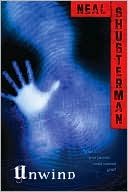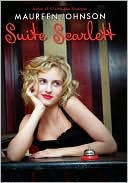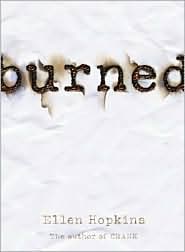Most recently, I breezed through three books while I was laid-up in bed for a week recovering from gall bladder surgery. I'm not sure if I have ever read three consecutive books exclusively before; however, I gave each of these books my undivided attention for a few days at a time until I'd read each in its entirety.
 Catching Fire by Suzanne Collins. The sequel to The Hunger Games is, as the reviewers have said, fantastic. It does exactly what the second book of a trilogy should do: Take the story from the first book to new, unforeseen-yet-totally-conceivable heights, prepare the reader for the crucial final installment, and tell an engaging story of its own. I thought I understood the cruelty of the Hunger Games before, but now I realize that the story of Katniss Everdeen and her dystopian society of Panem has only just begun. I want to be there for the end.
Catching Fire by Suzanne Collins. The sequel to The Hunger Games is, as the reviewers have said, fantastic. It does exactly what the second book of a trilogy should do: Take the story from the first book to new, unforeseen-yet-totally-conceivable heights, prepare the reader for the crucial final installment, and tell an engaging story of its own. I thought I understood the cruelty of the Hunger Games before, but now I realize that the story of Katniss Everdeen and her dystopian society of Panem has only just begun. I want to be there for the end.Neal Shusterman's Unwind is possibly the most disturbing book I've ever read. The story is set in an undated, though not so distant, future in which a
 compromise has been reached in the abortion debate: There are no abortions, but unwanted children between the ages of 13 and 18 may be unwound -- in other words, gotten rid of by means of harvesting their organs as donor tissue. Life is, therefore, preserved. In theory. This, my friends, is why I was disturbed, but I kept reading because the circumstances that lead to this society are our own circumstances. While I do not think the future represented in this book is conceivable for many reasons (namely and most disturbing of all, the sheer cost it would impose), it calls into question many related issues that we face or may face in the future and deals with them in a very unbiased way.
compromise has been reached in the abortion debate: There are no abortions, but unwanted children between the ages of 13 and 18 may be unwound -- in other words, gotten rid of by means of harvesting their organs as donor tissue. Life is, therefore, preserved. In theory. This, my friends, is why I was disturbed, but I kept reading because the circumstances that lead to this society are our own circumstances. While I do not think the future represented in this book is conceivable for many reasons (namely and most disturbing of all, the sheer cost it would impose), it calls into question many related issues that we face or may face in the future and deals with them in a very unbiased way.After all that mind-warping insanity, I needed a book that didn't give me nightmares. Luckily, I'd checked out Maureen Johnson's Suite Scarlett from our school library before I took my leave. The only other MJ book I've read is 13
 Little Blue Envelopes, which was quite a while ago. Since then, I've followed her on Twitter, which is a true entertainment. She makes all 140 characters count in the most succinctly hilarious ways. So reading a full-length novel in which she has hundreds of pages to share a story was such a different experience. Not a bad one, just different. I enjoyed the story. I was every bit as much glued to this book as a I was to Catching Fire or Unwind, but it wasn't because I was waiting for the next government-imposed atrocity. I didn't even care so much about the girl-boy relationship developing on the page or the mysterious Mrs. Amberson who turns Scarlett's world upside-down. I was most intrigued by and invested in Scarlett's relationship with her brother Spencer. To me, this was the key relationship and conflict in the story. To me, this is why Maureen Johnson's Suite Scarlett is worth reading. Isn't she writing a sequel called Scarlett Fever? If so, I want more Scarlett and Spencer.
Little Blue Envelopes, which was quite a while ago. Since then, I've followed her on Twitter, which is a true entertainment. She makes all 140 characters count in the most succinctly hilarious ways. So reading a full-length novel in which she has hundreds of pages to share a story was such a different experience. Not a bad one, just different. I enjoyed the story. I was every bit as much glued to this book as a I was to Catching Fire or Unwind, but it wasn't because I was waiting for the next government-imposed atrocity. I didn't even care so much about the girl-boy relationship developing on the page or the mysterious Mrs. Amberson who turns Scarlett's world upside-down. I was most intrigued by and invested in Scarlett's relationship with her brother Spencer. To me, this was the key relationship and conflict in the story. To me, this is why Maureen Johnson's Suite Scarlett is worth reading. Isn't she writing a sequel called Scarlett Fever? If so, I want more Scarlett and Spencer.And now the pendulum swings. As it is getting closer to Christmas, I find myself knitting more than reading. If only these two endeavors were more compatible. When I do find myself awake enough before bed to do more than the USA Today QuickCross puzzle, I'm reading on The Mysterious Benedict Society or Madeleine L'Engle's second Crosswick Journal, The Summer of the Great-Grandmother.
Fall break is less than a week away. Perhaps that will help.


